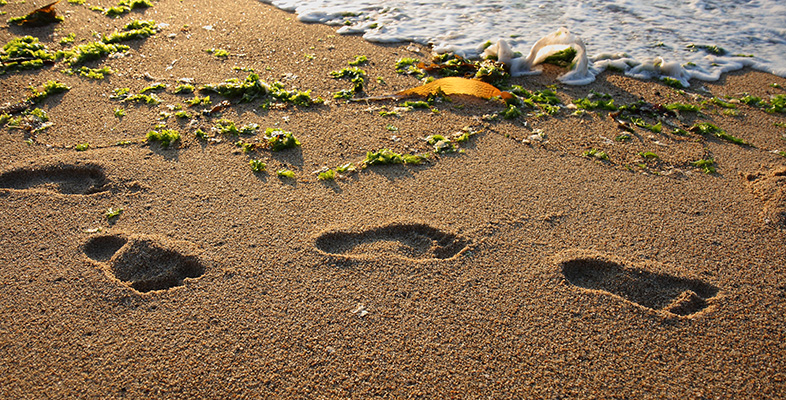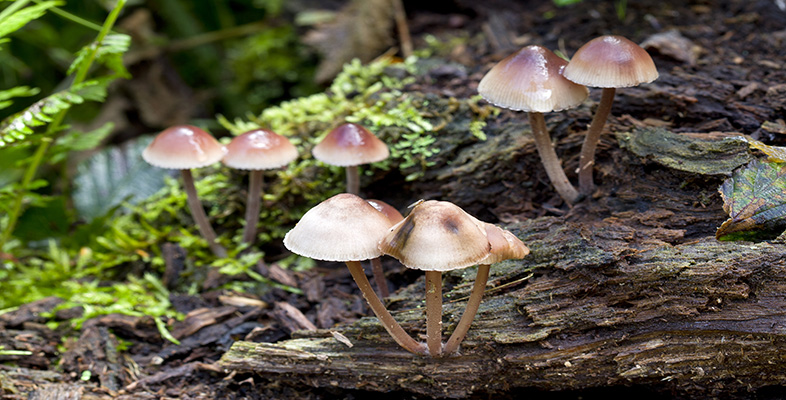The theme this year is Plastics vs. Planet. This is the moment to change it all — the business climate, the political climate, and how we take action on climate. Now is the time for the unstoppable courage to preserve and protect our health, our families, our livelihoods… together, we must Invest In Our Planet.
Below are some tips on how you can make some changes to protect our Earth...
Change your diet
By consuming more vegetables, grains and legumes, by eating in season and locally where possible, you not only help the environment and local businesses, you will be aiding animal welfare and living a healthier, more environmentally friendly lifestyle.
Read more:
- Eating for the environment (Free course)
- Can microplastics find their way onto your plate? (Article)
- Veganism interactive (Interactive)
- Vegans: why they inspire fear and loathing among meat eaters (Article)
- ‘Good’ food destroying biodiversity? (Article)
Reduce, reuse and recycle
The golden rule to follow is reduce, reuse and recycle. Reduce your consumption by asking yourself if you really need something before you purchase it. Try to think of the longevity of that item and where it might end up in a few month’s time; will it just become clutter to hoard or will it end up in a landfill?
It’s desirable to purchase new material goods, but before purchasing something brand new, is there something you already have that could be reused? Could you borrow it from a friend instead, or see if there is anything available second-hand? Everything you buy second-hand is saving it from landfill.
Some items do have a shelf life. When that time comes, dispose of it as responsibly as possible, rather than just putting it into your bin by default. Whether it’s passing on clothes to your local charity shop or taking your batteries to your supermarket to recycle; all of these efforts contribute to living more sustainably.
Read more:
- Plastics in our ocean (Interactive)
- Plastic materials, pollution and recycling (Article)
- Going on a plastic diet (Videos)
Shop sustainably
If you must purchase something new, then choosing a sustainable option is the earth-positive choice.
Each time you put your money into a sustainable product, not only are you helping, but you are investing in the bigger picture, by telling corporations that there is a growing demand in sustainable products. This in turn encourages them to manufacture with sustainability in mind.
From clothing to your toothbrush and the food choices you make, your decisions matter everyday.
Read more:
- Exploring economics: the secret life of t-shirts (Free course)
- Is your wash day polluting the ocean? (Article)
- Too much of a good thing? Choice challenges in sustainable clothes shopping (Article)
Transport
A huge contributor to carbon emissions worldwide, petrol cars equate to roughly 33% of C02 emissions in the United Kingdom alone (Source). Review your car usage to see if there’s any way to reduce your trips. Maybe on some journeys, you could use public transport instead, or bike to work every once in a while. Car sharing is another fantastic way to reduce cars on the road. Not only is this a way to network and make friends, but you’re also reducing carbon emissions and likely helping your colleagues by alleviating stress on your work car park.
Read more:
- Living without oil (Free course)
- Transport and sustainability (Free course)
Work habits
Sometimes, it’s the daily small habits that really add up. These unnecessary practices, shared by the masses, could make a huge difference over the course of a year. A good example would be limiting your printing at work to essential files, or always switching your monitor and computer off instead of leaving it on standby.
Another great way to reduce your carbon footprint is to regularly work from home. Not only are you reducing your car usage, but you are also saving on commuting and parking time, frequency of laundry loads as well as lunch or drink purchases; and what a great way to instil a better work-life balance into your lifestyle.
Read more:
- Energy in buildings (Free course)
- Could we control our climate? (Free course)
- Climate change: Transitions to sustainability (Free course)
- How much electronic waste do we generate as a species? (Article)
- How to include climate issues in your writing – Writing for climate (Videos)




Rate and Review
Rate this article
Review this article
Log into OpenLearn to leave reviews and join in the conversation.
Article reviews